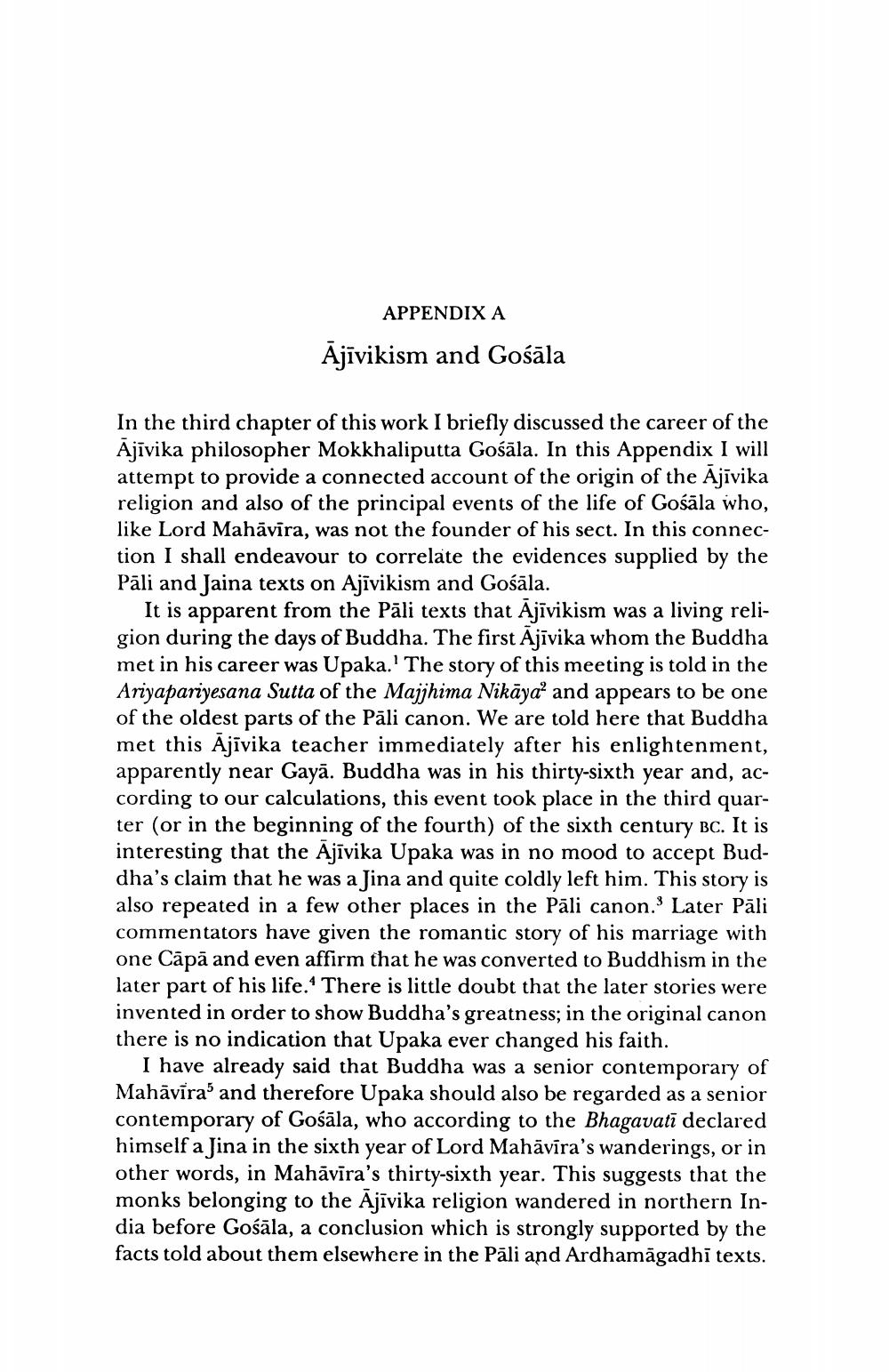________________
APPENDIX A Ajīvikism and Gośāla
In the third chapter of this work I briefly discussed the career of the Ajīvika philosopher Mokkhaliputta Gośāla. In this Appendix I will attempt to provide a connected account of the origin of the Ajīvika religion and also of the principal events of the life of Gośāla who, like Lord Mahāvīra, was not the founder of his sect. In this connection I shall endeavour to correlate the evidences supplied by the Pāli and Jaina texts on Ajīvikism and Gośāla.
It is apparent from the Pāli texts that Ajīvikism was a living religion during the days of Buddha. The first Ājīvika whom the Buddha met in his career was Upaka.' The story of this meeting is told in the Ariyapariyesana Sutta of the Majjhima Nikāya’ and appears to be one of the oldest parts of the Pāli canon. We are told here that Buddha met this Ājīvika teacher immediately after his enlightenment, apparently near Gayā. Buddha was in his thirty-sixth year and, according to our calculations, this event took place in the third quarter (or in the beginning of the fourth) of the sixth century BC. It is interesting that the Ajīvika Upaka was in no mood to accept Buddha's claim that he was a Jina and quite coldly left him. This story is also repeated in a few other places in the Pāli canon. Later Pāli commentators have given the romantic story of his marriage with one Сāpā and even affirm that he was converted to Buddhism in the later part of his life. There is little doubt that the later stories were invented in order to show Buddha's greatness; in the original canon there is no indication that Upaka ever changed his faith.
I have already said that Buddha was a senior contemporary of Mahāvira' and therefore Upaka should also be regarded as a senior contemporary of Gośāla, who according to the Bhagavatī declared himself a Jina in the sixth year of Lord Mahāvīra's wanderings, or in other words, in Mahāvīra's thirty-sixth year. This suggests that the monks belonging to the Ajīvika religion wandered in northern India before Gośäla, a conclusion which is strongly supported by the facts told about them elsewhere in the Pāli and Ardhamāgadhi texts.




